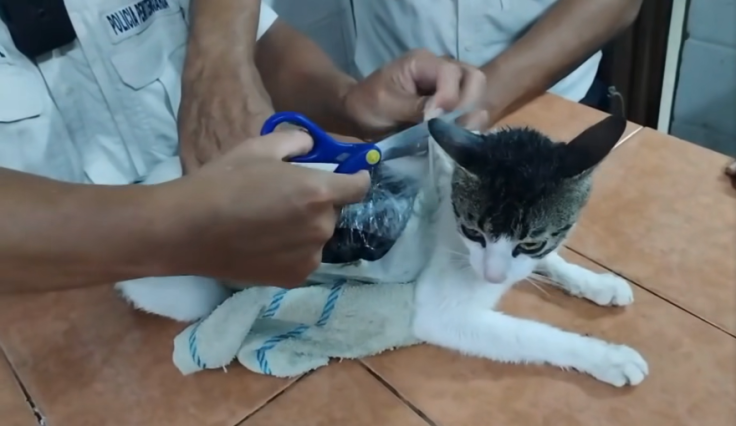
In a bizarre incident at Costa Rica's Pococí Penitentiary, prison guards intercepted a black-and-white cat attempting to smuggle drugs into the facility. The Costa Rican Ministry of Justice and Peace released a video on Facebook documenting the incident, which quickly went viral.
Social media users dubbed the animal "Narcomichi," combining "narco" and "michi," a colloquial term for cat in Spanish-speaking regions. In the footage, officials are seen carefully removing the drug packages from the cat's body.
The feline was spotted in a green area of the prison grounds with two packages strapped to its body. Upon capture, authorities discovered the cat was carrying over 200 grams of marijuana and nearly 70 grams of heroin.
"We believe the cat may have been trained or conditioned to enter the prison grounds from the outside," said Fiorella Salazar Rojas, Costa Rica's Minister of Justice. "This method of smuggling is not only unusual but highly concerning, as it suggests a level of planning and intent to exploit the animal in criminal activity."
Following the incident, the cat was handed to the National Animal Health Service for a health evaluation. Investigators are now working to determine who was behind the scheme and whether the feline was released near the facility by an accomplice on the outside, potentially guided by inmates. Authorities are reviewing security footage and tracking the animal's movements to identify patterns that could lead to arrests.
This case is part of a trend of using animals to smuggle contraband into prisons. Cats, in particular, have been utilized for their stealth and ability to move unnoticed. Inmates or external collaborators often attach small amounts of drugs or other contraband to cats, which then enter the prison grounds, sometimes lured by food or trained behavior.
Costa Rica has faced increasing challenges with drug trafficking and crime in recent years, largely due to its geographic position as a transshipment point between South America and North America. In 2023 alone, authorities seized 21.3 tons of cocaine, and in 2020, the state department reported that the country surpassed Mexico as the world's biggest transshipment point for cocaine for the United States. From 2020 to 2023, the Costa Rican homicide rate went up 53 percent.
In November 2023, the U.S. Drug Enforcement Administration collaborated with local police to dismantle Costa Rica's first fentanyl laboratory, with pills bound for the U.S. and Europe. It is widely believed that Mexican and Colombian drug cartels are the main perpetrators behind the scheme.
© 2025 Latin Times. All rights reserved. Do not reproduce without permission.





